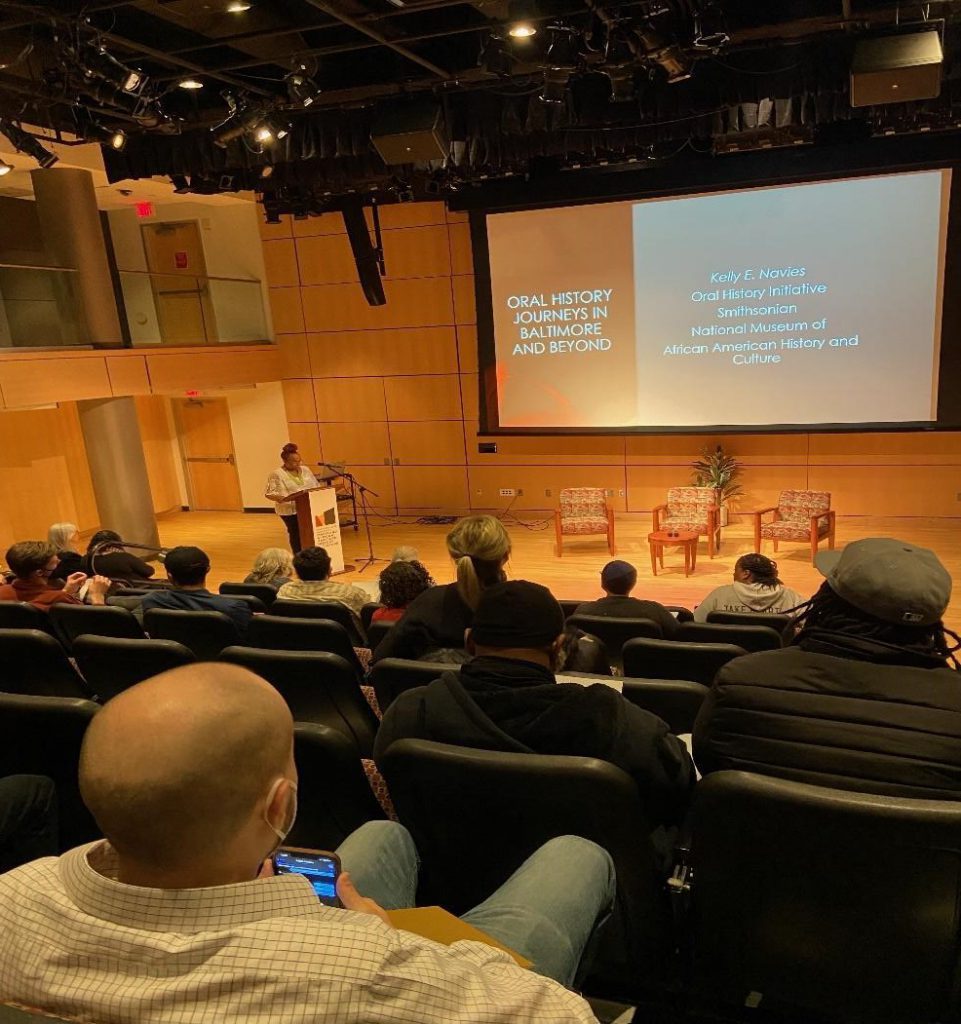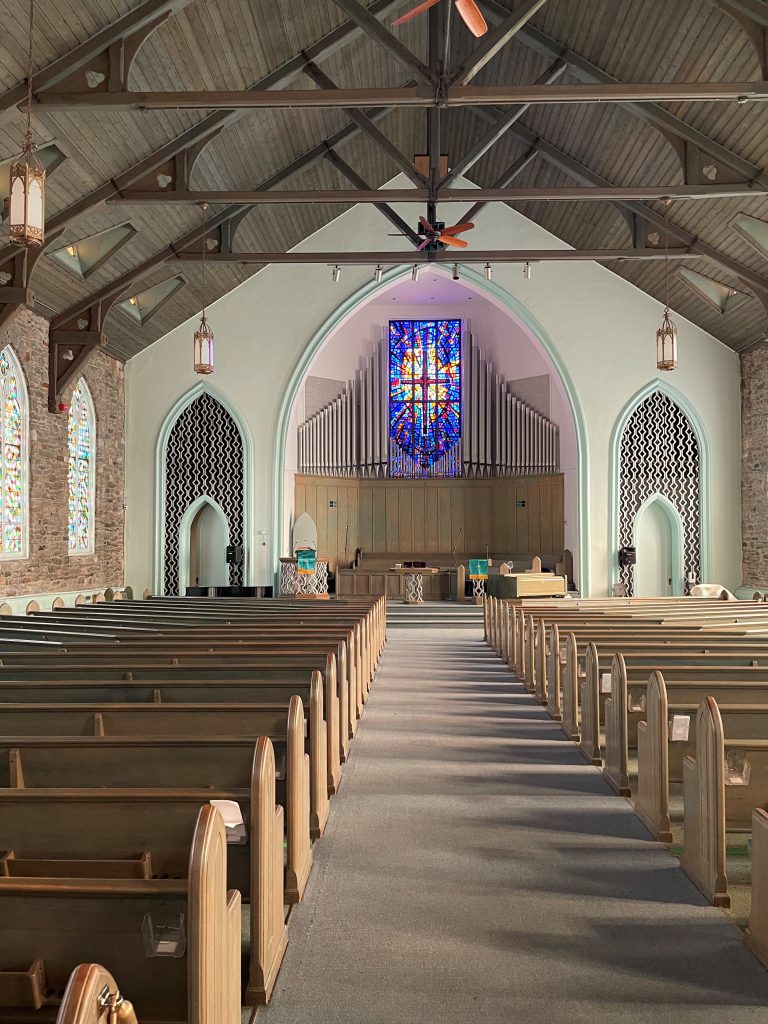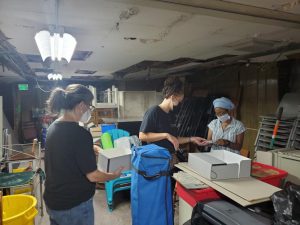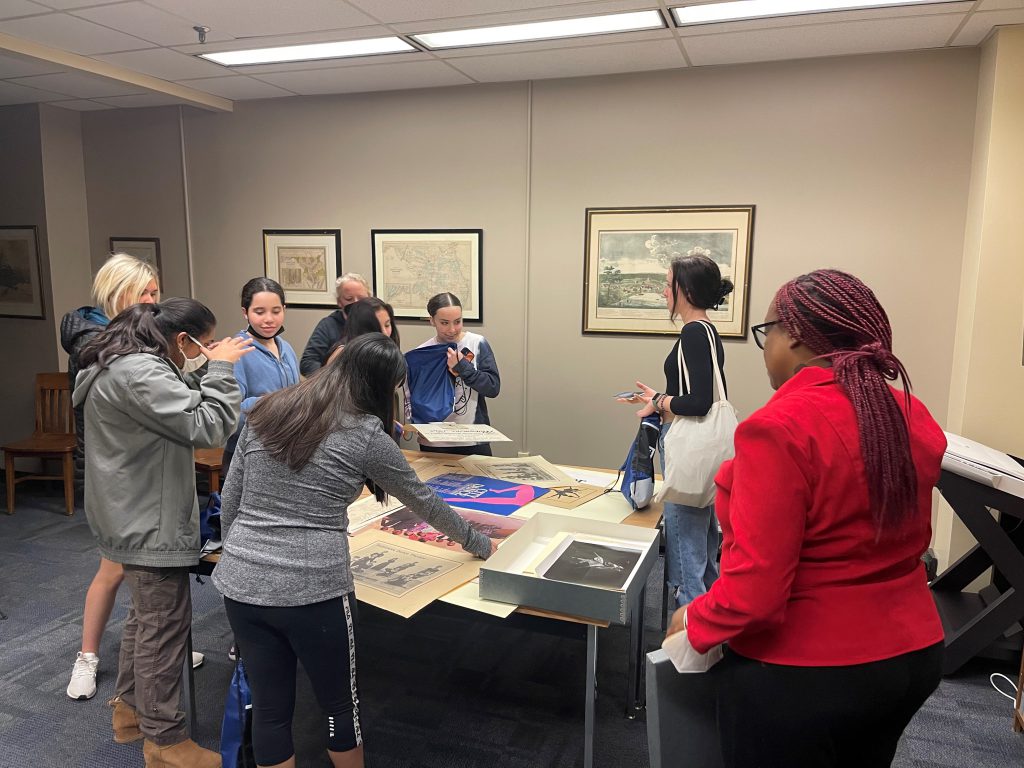
This blog post was created and written by Bria Warren, Inheritance Baltimore Community Archives Fellow. Learn more about the Community Archives Program at UBalt and Johns Hopkins University.
Since August 2021, I have been working in a fellowship focusing on community archives in Baltimore. The position highlights an institutional partnership between the University of Baltimore and Johns Hopkins University to emphasize the lived experiences of black Baltimoreans; this effort is supported by Inheritance Baltimore. Inheritance Baltimore is a project which hopes to mend Johns Hopkins University’s relationship with the surrounding Baltimore community. Working in this role, I have gained invaluable knowledge of Black Baltimore and its thriving history. Some of the most important things I’ve learned along the way are:
Members of the community want access to information. – Some of the most meaningful work we’ve done throughout this project is working with community members in various ways – through workshops and site visits. What I have learned is that community members crave access to this information. We have put on several workshops focusing on community archives and oral history. All of the workshops have had a great turnout from community members and many of the same attendees returned to learn more. We have also made site visits to historic black churches and homes to help members of the community with their archiving needs. Thus, we have been able to aid community members with how to properly archive and preserve their own histories. This has solidified the notion that the community needs more organizations to work together to provide information and access.
Black Baltimore churches are some of the oldest in the country, with such rich histories. We have worked with several churches throughout this process, including Union Baptist Church, St. James Episcopal Church, and Metropolitan United Methodist Church. Each of these historic churches has been around since the 1800s and they are filled with history, from the buildings the churches sit in, to the documents they have collected. One of the most unique aspects of these historic black churches is that they each have their own archive. Understanding how significant their narratives are to the Baltimore community, committees within each of these churches took it upon themselves to make the preservation of their histories a priority. St. James Episcopal Church has been around since the 1820s. The church is currently solidifying plans to create a designated room for its archive. Metropolitan United Methodist recently celebrated its 196th anniversary in November 2021, during which the church displayed its own Heritage Hall; the hall was filled with archival photographs, documents, and artifacts from the church’s past. Finally, Union is the second oldest Black church in Baltimore and its archives committee takes preservation very seriously. The Archives Ministry occupies a dedicated records room, as well as a Room of Remembrance honoring the history of the church.

There’s always a connection. – So many institutions in Baltimore have deeply rooted connections to one another. It is important to look for these connections to help form a more complete story. For example, we have worked with the AFRO newspaper archives, the Eubie Blake Cultural Center, and the historic Black churches of Baltimore. Many of these organizations collaborated for events in the past, while the AFRO covered these events. In a collection of photos from the Eubie Blake Center, we have seen photographs of Kwanza celebrations for children. In the AFRO archives, we have seen extensive coverage of these Kwanza celebrations. We have also seen coverage in the AFRO of events that took place at various Black churches around Baltimore; photos of the events exist in the churches own archives. The connections between these Baltimore institutions and organizations help to solidify the history we already know to be present within the archives.

Collections can uplift the community. – Currently, I am processing the Robert Breck Chapman (RBC) collection at UBalt. Chapman was a city photographer and teacher for the Cultural Arts Program from the 1960s through the 1990s. The program exposed the youth in the community to various art forms, including music, dance, photography, visual arts, and theater. The Cultural Arts Program encouraged cultural awareness and racial pride among African American youth. Some of the most vibrant, powerful imagery of Black Baltimore exists within this collection, showing photographs of Black prosperity and joy. Usually, the media uses images of Black Baltimore to highlight moments of struggle; this collection rightfully challenges that narrative. So many of the photographs that exist in the RBC Collection show crucial members of the Baltimore community engaging with and supporting the arts; many community members have even identified photos of themselves within the collection. This has helped the community to remember how powerful their personal stories are in addition to envisioning a future where the arts can positively impact the city and its youth again.

There’s power in numbers. – The more institutions and organizations are willing to work together on these projects, the more effective programming and aid to the community will be. I have seen this first hand with the oral history workshop series that happened in March and April of this year. Six institutions sponsored this event, including the Maryland Center for History and Culture, the Eubie Blake Cultural Center, the Reginald F. Lewis Museum, Baltimore Speaks, the University of Baltimore, and Johns Hopkins University. With all of this unified support, the workshop series had an amazing turnout, and nearly all of the attendees rated it highly. Attendees noted that they enjoyed the speakers at the workshops and that they gained valuable knowledge. Many also asked if we would be doing another workshop series in the near future. Throughout this effort, we have worked with the Eubie Blake Cultural Center on many projects which have been successful. Creating these institutional and organizational partnerships is crucial. If we continue to work together in such a positive way, the community will only benefit from it.